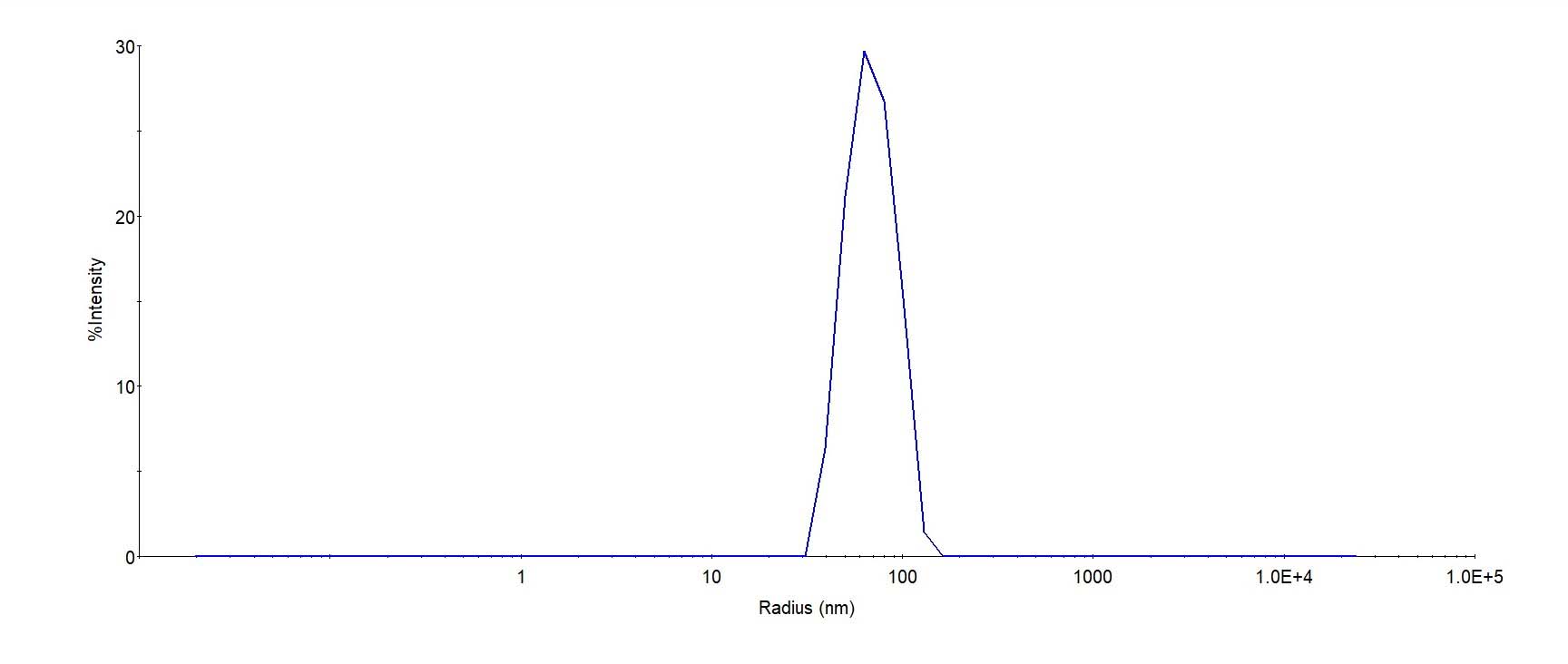分子别名(Synonym)
BN-1, C-C CKR-6, CC-CKR-6, CCR-6, CD196, CKR-L3, CKRL3, CMKBR6, DCR2, DRY6, GPR29, GPRCY4, STRL22
表达区间及表达系统(Source)
Human CCR6 Full Length Protein (VLP) (CC6-H52P3) is expressed from human 293 cells (HEK293). It contains AA Ser 2 - Met 374 (Accession # P51684).
Predicted N-terminus: Asp
蛋白结构(Molecular Characterization)
Virus-like particles(VLPs) are formed by self-assembly of envelop/capsid proteins from viruses. Membrane Proteins can be constituted in-situ with VLPs produced from HEK293 cell cultures. These VLPs concentrate conformationally intact membrane proteins directly on the cell surface and produce soluble, high-concentration proteins perfect for immunization and antibody screening.

The VLPs provide the display of properly folded membrane proteins in their native cellular membrane in a compact size of 100~300 nm diameter (similar to the size of most viruses) making it optimal targets for dendritic cells in vivo and surface attachment for phage display.
制剂(Formulation)
The VLPs are highly immunogenic, so the immunization strategy should be optimized (antigen dose, regimen and adjuvant).
Supplied as 0.2 μm filtered solution in PBS, Arginine, pH7.4 with trehalose as protectant.
Contact us for customized product form or formulation.
运输(Shipping)
This product is supplied and shipped with dry ice, please inquire the shipping cost.
存储(Storage)
Please avoid repeated freeze-thaw cycles.
This product is stable after storage at:
- The product MUST be stored at -70°C or lower upon receipt;
- -70°C for 12 months under sterile conditions.
活性(Bioactivity)-ELISA

Immobilized Human CCR6 Full Length Protein (VLP) (Cat. No. CC6-H52P3) at 5 μg/mL (100 μL/well) can bind Anti-CCR6 Antibody with a linear range of 0.1-8 ng/mL (QC tested).
Protocol
均一性(Identity)-DLS

The mean peak Radius of VLP is 55-75 nm with more than 95% intensity as determined by dynamic light scattering (DLS).
背景(Background)
This gene encodes a member of the beta chemokine receptor family, which is predicted to be a seven transmembrane protein similar to G protein-coupled receptors. The gene is preferentially expressed by immature dendritic cells and memory T cells. The ligand of this receptor is macrophage inflammatory protein 3 alpha (MIP-3 alpha). This receptor has been shown to be important for B-lineage maturation and antigen-driven B-cell differentiation, and it may regulate the migration and recruitment of dentritic and T cells during inflammatory and immunological responses. Alternatively spliced transcript variants that encode the same protein have been described for this gene.























































 膜杰作
膜杰作 Star Staining
Star Staining











